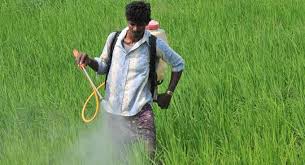Skill enhancement and continuous training of workforce is the need of the hour to bring down the number of accidents in agrochemical plants

"Agrochemical industry contributes heavily towards food security and provides employment to a large workforce. It has been a champion sector with regard to exports, next only to the pharmaceutical industry, which has been receiving its due share of 'Ease of Doing Business' while removing bottlenecks and progressive regulatory measures to safeguard the environment," said Samir Kumar Biswas, Additional Secretary - Chemicals, Department of Chemicals & Petrochemicals, Ministry of Chemicals and Fertilizers.
Addressing the webinar 'Importance of Safety in Manufacturing: Indian Crop Protection Industry - Operation and Execution of Production Change Management', organized by FICCI, jointly with CropLife India, Biswas added, “We have seen a good number of accidents happening in petrochemicals and pharma sectors, especially in small and medium enterprises. This segment needs to implement the compliances more effectively and implement self-regulation. While we analyze at our end, they must diagnose the issues as well. We have regulations for ensuring safety through audits and regulatory oversight. We have to have a fine balance so that it doesn't become a hindrance for business. For that industry has to maintain best practices and self-certification. Shouldn't allow regulatory staff to point out lacuna. If we are able to go ahead of regulatory compliance, we can show the world. Due to such hazards, not only are lives lost, it is also a loss for business and economy. Government is emphasizing sustainability and a circular economy besides putting efforts towards achieving it. By using less and polluting less, we aim to save valuable resources and do economic value addition.”
We have entered in a phase of global geo-political realignment and it presents India with great opportunity in agrochemicals, says Raju Kapoor, Director of Industry & Public Affairs, FMC India.
Kapoor reminds the Indian companies that the country's safety history is a very important aspect that is looked into globally.
“Safety is a culture and mindset. We need to address the technical issues. Where the vessels were designed properly but the temperature on the sides of the vessel in solvents on sides was not stable. We need equipment that has no issues. Technological updation, GMPs, behavioral changes including training. It won't just happen by saying It will happen when leaders do it. Mentorship and cross learning is required to promote the culture of safety. Manufacturers should take up these initiatives that can address the large ecosystem. Sustainability and focus on the environment is very crucial. Industry and academics have to work together. The time for us to wait for inspectors to tell us we have done wrong is over. We must now rather have a system where we should have safety advisors,” added Raju Kapoor.
Asitava Sen, Chief Executive Officer, CropLife India said, "Agrochemicals have been identified as one of the champion sectors where India has the potential to become a major global supply hub. In that context it becomes important to take care of the safety aspect. The regulatory part is important and as a responsible industry, we have been trying to ensure the safety of stakeholders. The recent incidents of accidents are due to poor implementation of regulations. The cross-industry discussions have highlighted the diversity of implementation practices in industry towards safety and the challenges encountered in implementing and maintaining effective management of change programs; and has served as a platform for sharing evolving best practices.”
Dr. K. C. Ravi, Chairman, CropLife India and Chief Sustainability Officer, Syngenta said, "Responsible manufacturing of crop protection chemicals is an integral part of our industry. Right from discovery to disposal, we are committed to safe practices. We work with the objective to protect both our employees and environment to the fullest extent possible. Our industry from which much of modern plant science has evolved has always had a good safety record. We comply with all the regulatory compliances but industry also takes forward its further responsibilities and takes part in voluntary initiatives also. In addition to taking care of employee safety, significant improvements have been made to reduce the waste and Co2 emissions. When we talk of the responsible manufacturing management system, that can be anywhere across the segments such as plant and process safety, pollution prevention, employee health & safety, emergency response and community awareness, quality management, contamination prevention, risk assessment and reporting and auditing. Companies are doing their best to achieve 100%. Steady progress has been made to reduce environmental damage."
Agrochemical industry might be small but has a colossal impact on the food security of the nation, says R. G. Agarwal, Chairman, FICCI - Crop Protection Committee and Group Chairman, Dhanuka Agritech who feels that lack of enough compliances in few plants lead to the incidents of accidents.
“There is no substitute for safety and it is needed everywhere be it chemical petrochemical or agrochemicals. Unfortunately, in our country, many workers do negligence as they carry matchboxes and cigarettes in tiffin boxes to avoid security. Such people are intentionally compromising the safety parameters despite the efforts to implement them by the companies. Until our culture towards safety changes, it would be difficult to change things. I think training institutes must come up with various parameters for compliance. While we have enough laws, practical aspects need more attention. Although IT systems have helped evolve the safety of the agrochemical plants; skill enhancement and continuous training of the workforce, both by the government and the industry are the needs of the hour, which would further elevate the levels of safety in the industry,” added Agarwal.
Subscribe to our newsletter & stay updated.